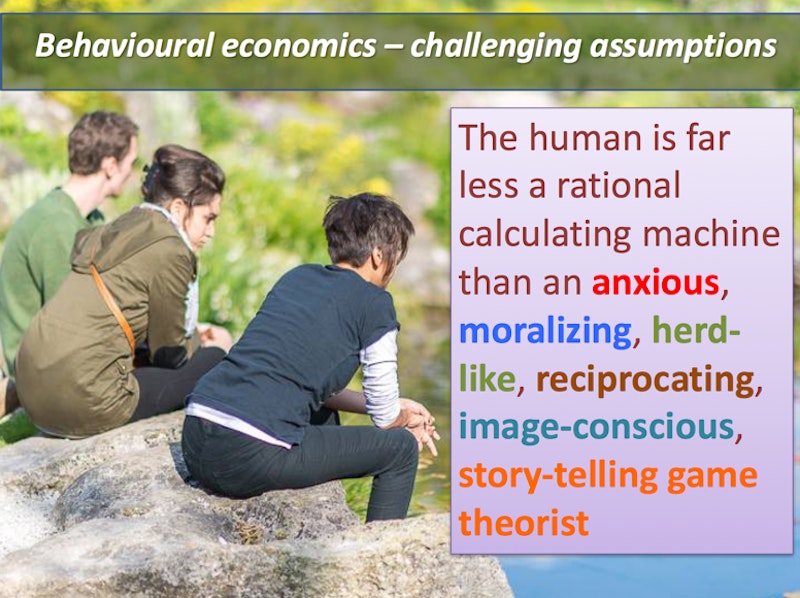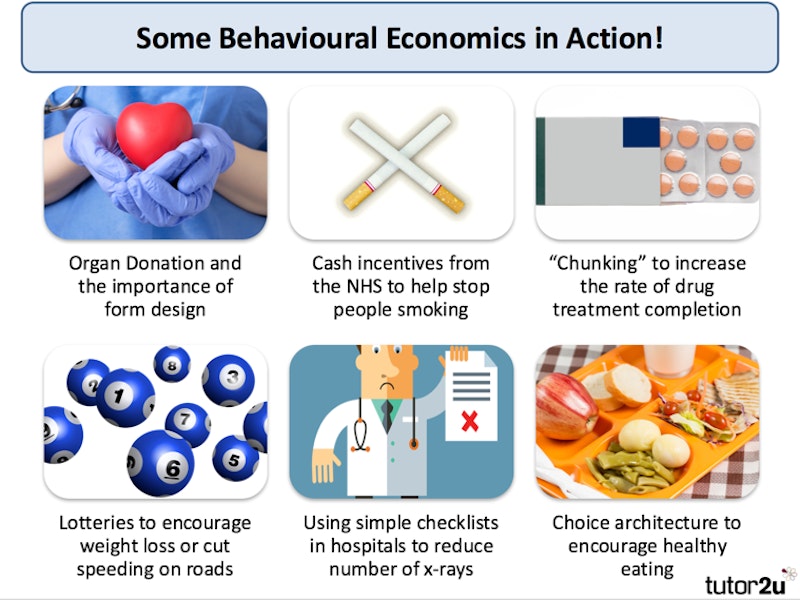Study Notes
Evaluating Behavioural Nudges (Behavioural Economics)
- Level:
- AS, A-Level
- Board:
- AQA, Edexcel, OCR, IB
Last updated 21 Mar 2021
Are behavioural nudges effective in achieving aims of public policy?
Behavioural nudges are an alternative to using taxes and subsidies to influence choices and many have been or are being applied in public policy-making both in the UK and in a growing number of countries. How effective are behavioural nudges in prompting desired changes of behaviour to meet economic, social and environmental targets and aims? Development policy-makers want people to use anti-malarial bed nets, drink clean water, and send their children to school - but which interventions might have most impact in addressing these challenges?

Some recent examples of behavioural nudges / behavioural policy in action!

Some more examples

Critical Evaluation: Are Behavioural Nudges Effective?
- Behavioural economics may encourage government to become too paternalistic in their policies attempting to nudge behaviour
- Behavioural economics focuses too heavily on people’s vulnerability to fall for fallacies and their psychological biases – it can give the impression that consumers are dumb
- In fact consumers using well-practiced rules of thumb might be operating in a rational way
- There are clear limits to the application of nudge theory – it may be useful in changing minor behaviours in a modest way but not in changing deep rooted psychological problems such as alcoholism, drug dependency and street violence
- Conventional policy interventions such as taxes, subsidies and regulations are often just as effective as nudges because price remains an important determinant of choices in markets
You might also like

Behavioural Economics: Smoking Kids
23rd June 2012

Why you shouldn't copy your classmates!
16th May 2015

Perfect Game Theory Starter Activity
13th August 2015

Paul Ormerod: Are the Markets Telling the Truth?
28th January 2016
Default Bias (Behavioural Economics)
Study Notes

Finland aims to be tobacco free by 2040
28th January 2017
Scottish minimum alcohol price reduces demand
26th September 2019
Daily Email Updates
Subscribe to our daily digest and get the day’s content delivered fresh to your inbox every morning at 7am.
Signup for emails